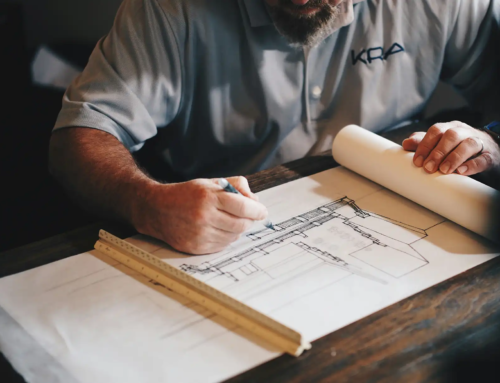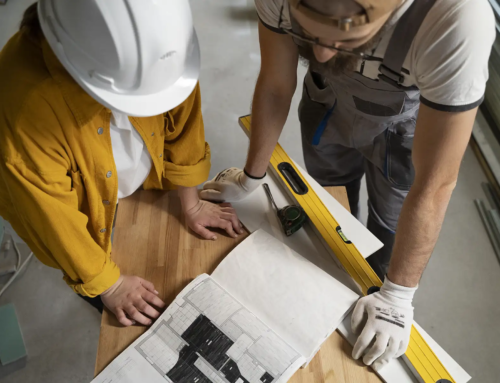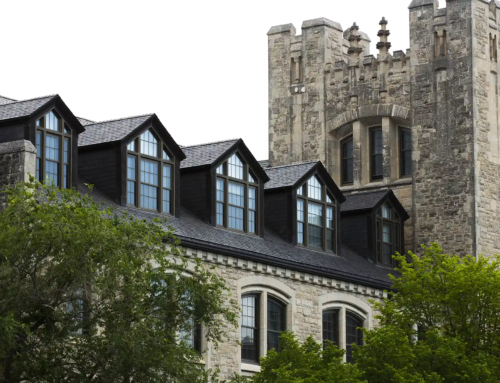PCC Certificates vs Structural Warranties
The construction industry often involves different levels of insurances, certificates and protections for all parties involved especially those undertaking self builds. Two important documents that arise in this space are Professional Consultants Certificate (PCC) and Structural Warranties. While both aim to provide assurance, they serve different purposes and cater to different needs before and after the construction process. In this blog, we’ll explain the key differences of PCC certificates vs structural warranties, including do mortgage lenders require them, can they be attained retrospectively, what they cover and when they should be obtained. We’ll also discuss who typically requires these certificates, the costs involved, and other essential FAQs, such as whether it’s possible to secure a mortgage without them. By the end, you’ll have a clear understanding of these documents and how they might apply to your project.
What is a Professional Consultant Certificate (PCC)?
A Professional Consultants Certificate (PCC) also known as a ‘architects certificate’ is an essential verification tool in the construction industry. It is issued by a qualified professional, such as a surveyor or architect, who inspects the construction work to confirm it meets the required standards and regulations. These architects certificates ensure legal liability, backed by professional indemnity insurance.
What is covered by a professional consultants certificate
This certificate covers various aspects, including building safety, compliance with local regulations, and adherence to design specifications. Obtaining a PCC is usually essential not only for regulatory purposes but also for ensuring that buyers and financial institutions feel confident in the quality and safety of the newly converted residential property. They may also be need if you intend to rent your property with a buy-to-let mortgage.
Typically, a PCC certificate can cover a 6 year period or a 10 year period, although you may not have a choice here as what coverage you need depends on your requirements for selling the property or possibly what’s required by the bank before a lender accepts the application to finance the building.
What is a Structural Warranty?
A structural warranty is an insurance policy that protects against structural defects in a building after construction is completed, usually for 10 years. This warranty will cover key structural elements like foundations, walls, roofs, floors, and load-bearing components, ensuring the stability and integrity of the property.
What is covered by a structural warranty?
Coverage is often divided into two phases: the first two years cover defects from poor workmanship or materials, while years 3–10 focus on structural issues.
A structural warranty is essential for self-builders, developers, and homebuyers, as it provides reassurance about the quality and durability of a property. Many mortgage lenders require a structural certificate for financing new builds or conversions. It also offers buyers confidence in their investment by safeguarding against unexpected repair costs for major defects.
Costs for a 10-year warranty vary based on project size, type, and provider. We go over the actual costs in more details below but unfortunately you won’t be looking at just a few hundred pounds here. Ultimately, it acts as a vital safety net, ensuring peace of mind for all parties involved in the property’s construction or purchase. Be sure to read the structural policy small print before signing any contracts.

Who needs Professional Consultants Certificates and Structural Warranties?
Professional consultants certificates and structural warranties are not merely optional enhancements but often necessities in the construction industry. Homeowners looking to build or purchase new properties should be aware of these documents and understand their value. Having PCC certificates assures buyers that the construction was done according to established guidelines, while a structural warranty protects them from future risks.
Builders, developers and contractors also require these certifications as they illustrate compliance with local building regulations and industry standards. Banks may also require them as they can be essential for securing financing or insurance, lenders often want to see such protections in place before approving a mortgage, they will also need to see the certificates ave been issued by a qualified consultant on the ‘architects registration board’.

The role of Structural Warranties in construction projects
Structural warranties play a crucial role throughout various stages of construction projects. Initially, they can influence the design phase by encouraging builders to adhere to high construction standards.
During ongoing construction, the presence of a warranty can help ensure that all work is done correctly, as builders will want to avoid potential claims related to structural failures. Finally, when the project wraps up, having a structural certificate in place not only reassures homeowners but also can be a key selling feature should the owner choose to sell the property at some point in the future.

Which is better PCC or Structural Warranty?
The debate over whether a Professional Consultants Certificate (architects certificate) or a structural warranty is better is subjective and largely dependent on the specific needs and circumstances of the project. For any newly converted property a PCC provides assurance regarding the adherence to construction standards during the build, while a structural warranty offers protection against future structural failures.
For homeowners, ideally having both offers the most comprehensive protection and peace of mind. If forced to choose, those concerned about potential future issues may favour a structural warranty, while those focused on the immediate assurance of construction quality may lean towards acquiring a PCC, remember a lender may require either or both documents for financing.

How much do Professional Consultants Certificates (PCC) and Structural Warranties cost?
Ok we won’t sugar coat this, they can cost thousands of pounds, as a example a 6 year PCC certificate can cost around £900, 10 year PCC certificates can cost around £1800 and a 10 year structural warranty can be anywhere between £2000 and £4000! Please bear in mind the costs associated with Professional Consultants Certificates and structural warranties can vary considerably depending on several factors, including the size of the project, location, and the professionals or companies involved.
In general a PCC may cost anywhere from a few hundred to thousands of pounds, as mentioned structural warranties can range broadly as well, however, these warranties are often structured as a percentage of the total construction costs. Homeowners can expect to pay anywhere from 0.5% to 1% of the total construction cost for a warranty. It’s crucial for both homeowners and builders to shop around and compare quotes to ensure they receive the best coverage at a reasonable price. Find out more about warranty costs here.

Can you get a retrospective PCC or Structural Warranty?
The good news is yes! In most cases you can retrospectively acquire both PCC architects certificates and structural warranties after building completion, the bad news is you can expect to pay double the prices quoted above, for a large complex build expect quotes upwards of £5000 for structural warranties! Retrospective acquisition of a professional consultants certificate or structural warranty is typically more complicated than obtaining them prior to or during construction. For a PCC, a qualified professional may need to review the completed structure to ensure it meets current standards, which may have changed since the original construction, they check the structure and complete a post completion inspection.
In terms of a structural warranty, some providers allow homeowners to purchase coverage even after completion, but this often comes with higher premiums and additional prerequisites. The insurance company will conduct a thorough inspection of the property to assess any existing issues before granting warranty coverage.

Do mortgage lenders release funds without a Structural Warranty or Professional Consultants Certificate?
In short yes you can get a mortgage without either however, obtaining a mortgage without a Professional Consultants Certificate or structural warranty can and probably will be challenging. Most mainstream residential mortgage lenders prefer or even require these documents to ensure they are making a sound investment, you or your mortgage advisor should contact the lenders direct to discuss the application.
Without PCC certificates, uk finance mortgage lenders may be wary of potential issues arising from the construction process.
Similarly, the absence of a structural warranty may discourage lenders since it signifies a lack of protection against future structural failures. However, it is not impossible. Some lenders accept specific circumstances and might still offer financing, but the terms and interest rates may be less favourable. In many cases, potential homeowners may find it significantly advantageous to obtain these documents before seeking a mortgage as it is likely to slow the mortgage application process and limit financing options. To summarise having these protections can significantly simplify the mortgage process, as mortgage lenders get more selective with who they lend to these documents offer a bit more peace of mind for banks or building societies.

For more information and to start a quote for Professional consultants certificates and structural warranties head to Architects Warranties or Build Warranty websites to get started.
Feel free to contact Lilly Lewarne RIBA chartered practice with any questions or head back to our blog home page for more articles on architecture and design tips!











